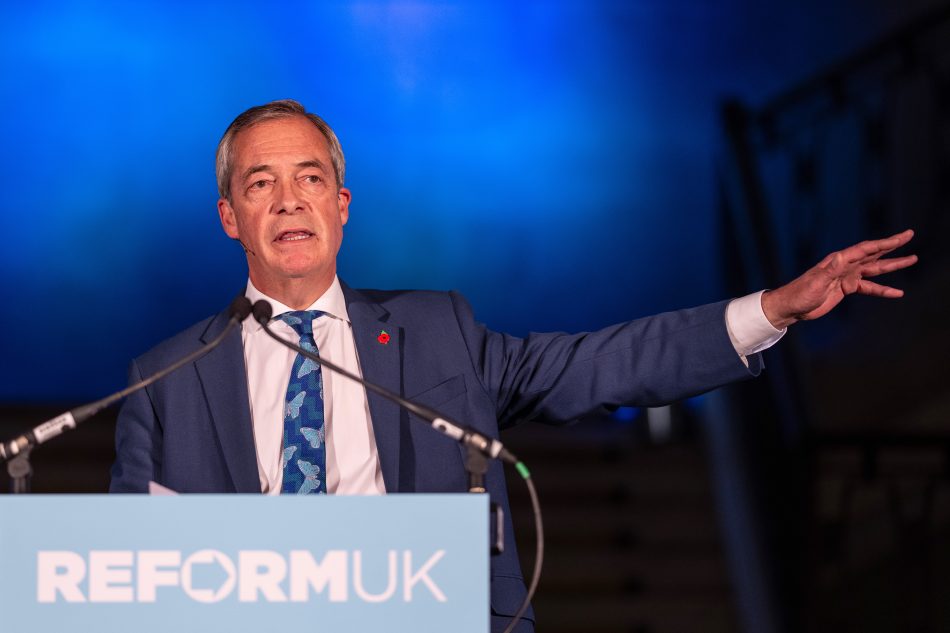With Reform leading in the polls, Nigel Farage is determined to ensure that nothing can impede its growth. This morning he sought to bolster his credibility on an area that the Tories think could be his Achilles heel: the economy.
Reform’s £90 billion programme of tax cuts promised at the last election has been constantly used as a stick with which to beat its leader. So today, Farage took to the stage in the City, to – once again – formally bury ‘Our Contract with You’ – the platform on which he was elected in July last year. This morning’s speech was all about Reform claiming the mantle of fiscal conservatism and claiming that the party can be trusted with the nation’s savings.
Farage’s speech was aimed at blunting Labour’s best attack line: that a Reform government would be Liz Truss 2.0
Farage declared that a Reform administration would be ‘the most pro-business, the most pro-entrepreneurship government that has been seen in this country in modern times.’ He accepted that major tax cuts would be off the agenda until government debt was down, hammering both of the two main parties on their record here. Much of his 30-minute speech was indistinguishable from that given by any mainstream Conservative politician. There were echoes of the address given by Andrew Griffith, the shadow business secretary, at last month’s Tory conference: financial education in schools, revitalising the City and cutting post-Brexit regulations.
The audience in Banking Hall was stuffed with corporate lobbyists, plenty of whom have served Tory administrations in one guise or another. A fair few were nodding along to different sections of Farage’s speech, including his paean to the joys of capitalism. ‘Free markets work because people take risks,’ he said. ‘It’s not the job of government to bail them out.’ But while today’s speech was designed to appeal to the Tory commentariat, it was also aimed at blunting Labour’s best attack line: that a Reform government would be Liz Truss 2.0. In pledging tax cuts without accompanying spending cuts, they argue, Reform would put the health of the economy at risk.
Farage sought to address this claim head on. He cited Lee Anderson’s pledge last week to tighten the eligibility for Personal Independent Payments to save £9 billion a year by 2029. ‘We are overdiagnosing many of these things’, he said. He cited various pledges: Richard Tice’s review of public sector pension schemes, revoking the rights of low-skilled migrants who arrived in the ‘Boriswave’ and curbing the size of the state. He also played down the likelihood of massive tax cuts – though he again restated his desire to make the first £20,000 of UK earners tax-free: a costly pledge.
The criticism of today’s speech will be that it lacked policy detail. But with Farage’s priority being the macro picture, he will hope that the micro details can be fleshed out in the weeks and months ahead.






Comments